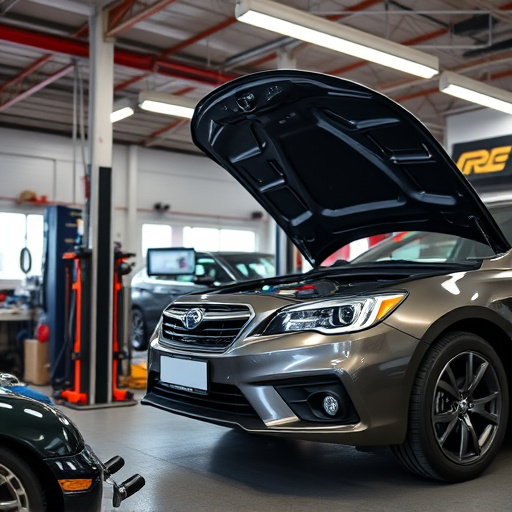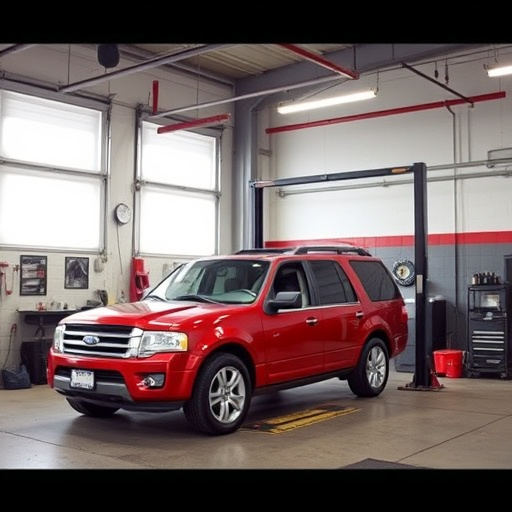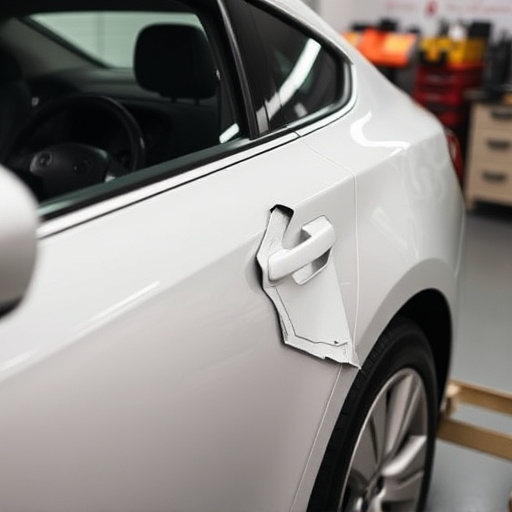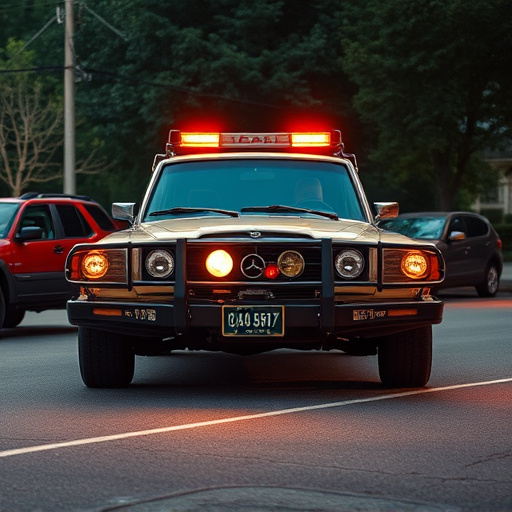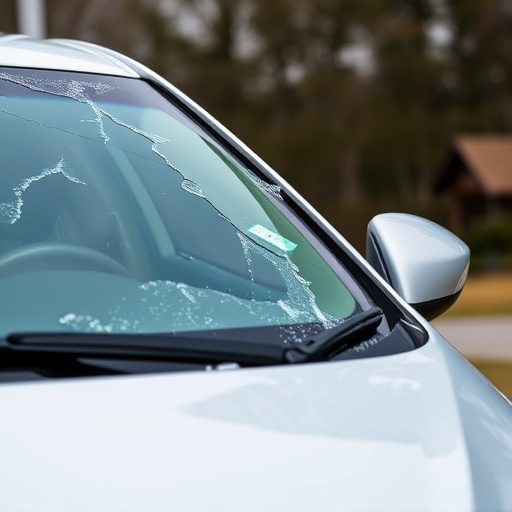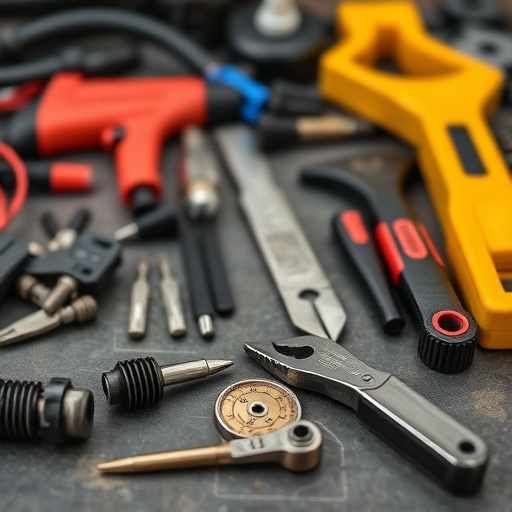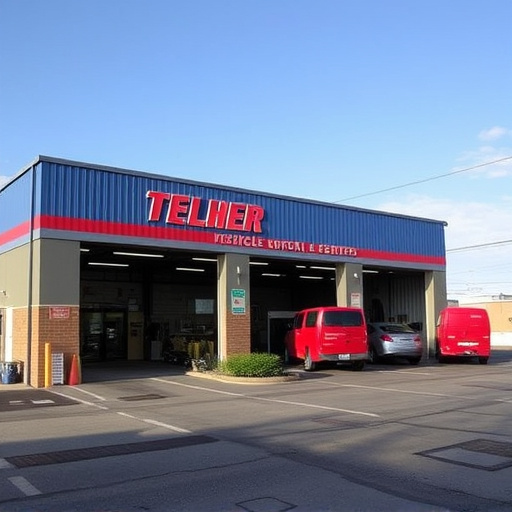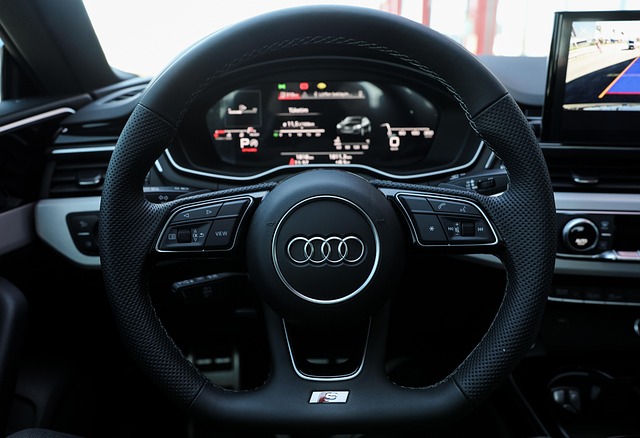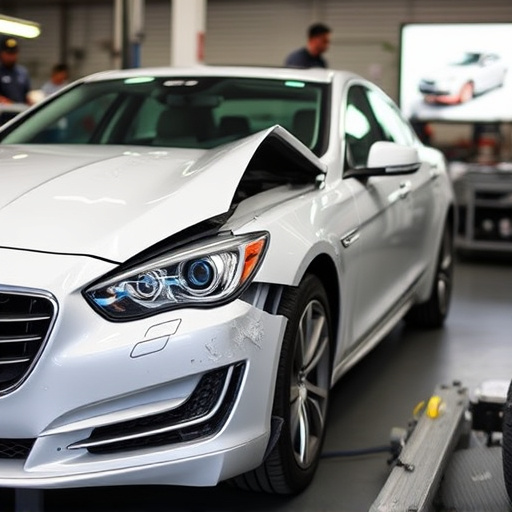Highway collision centers are strategic lifelines for vehicular accidents, providing immediate assistance like emergency towing and medical aid. They offer comprehensive collision repair and auto painting services, serving as one-stop shops for vehicle restoration. Leveraging advanced technologies such as automated guided vehicles (AGVs), robotic welding systems, digital measurement tools, and CAD software, these centers ensure top-notch repairs with precision, efficiency, and quality that meet OEM standards, while using lightweight composite materials and advanced paint systems to enhance crash safety and aesthetics.
Highway collision centers play a vital role in ensuring road safety and facilitating swift vehicle repairs. In today’s fast-paced world, these facilities offer a range of services from minor dent repairs to extensive accident damage restoration. Understanding what these centers provide is essential for drivers, as it ensures efficient and effective vehicle maintenance. This article explores the common services, modern technologies, and the evolving landscape of highway collision repair, shedding light on why these centers are indispensable in our daily lives.
- Understanding the Role of Highway Collision Centers
- Common Services Provided by These Facilities
- Modern Technologies in Highway Collision Repair
Understanding the Role of Highway Collision Centers
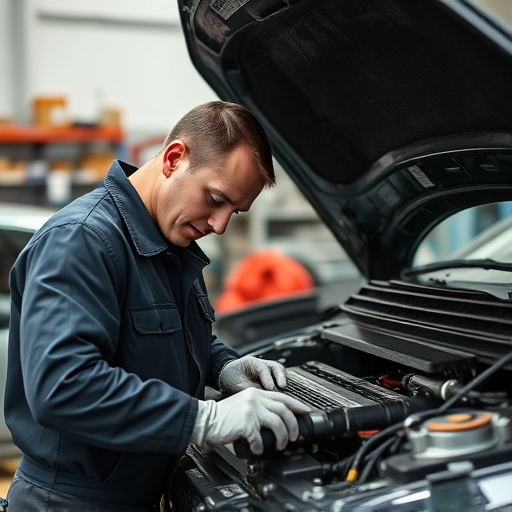
Highway collision centers play a crucial role in facilitating swift and efficient response to vehicular accidents along major thoroughfares. These facilities are strategically located to serve as lifelines for drivers involved in collisions, offering immediate assistance and critical services that range from emergency towing to medical aid. Beyond their primary function of ensuring safety, highway collision centers also provide essential support during the post-accident period, including collision damage repair and auto painting services.
Understanding the role of these centers is vital in appreciating how they contribute to maintaining road safety and minimizing disruptions. They serve as one-stop shops for collision repair services, offering specialized expertise in assessing, repairing, and restoring vehicles to their pre-accident condition. Whether it’s addressing minor dents or handling complex structural damage, these centers employ advanced technologies and skilled technicians to provide top-notch collision repair services while ensuring customers’ satisfaction and peace of mind.
Common Services Provided by These Facilities
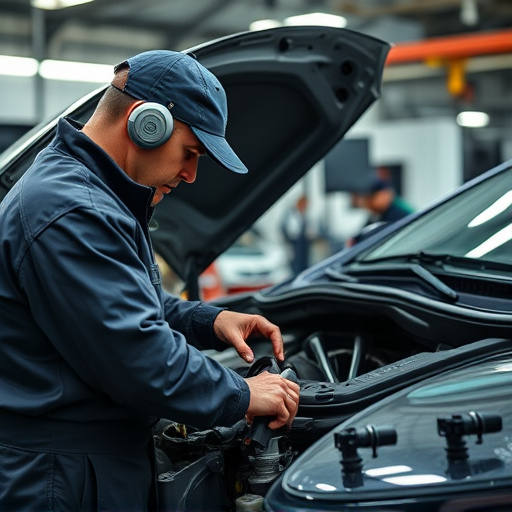
Most highway collision centers offer a comprehensive range of services designed to cater to various vehicle needs after an accident or damage. Beyond basic collision repair, these facilities often provide estimates for repairs, ensuring that customers understand the costs involved in restoring their vehicles to pre-accident condition. Many also specialize in auto body shop work, fixing dents, scratches, and other cosmetic issues.
Collision repair is a core competency, with experienced technicians using advanced equipment to realign frames, replace parts, and perform meticulous paint jobs. For those who need it, these centers can also facilitate the entire insurance claim process, streamlining the often-complicated procedures involved in getting compensation for damages. Think of them as one-stop shops for all car repair shop needs related to accidents or wear and tear.
Modern Technologies in Highway Collision Repair
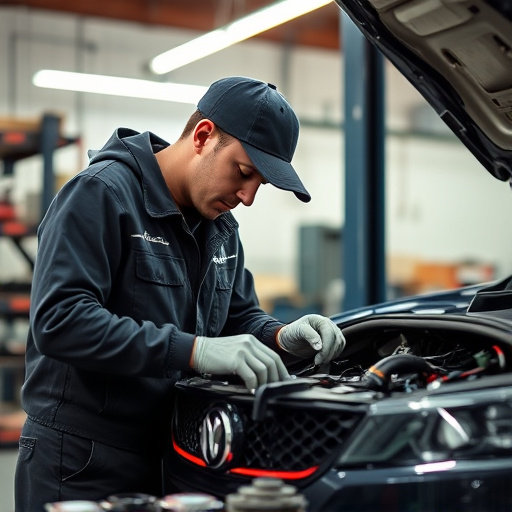
In today’s digital age, modern highway collision centers are embracing innovative technologies to enhance their repair services. Automated guided vehicles (AGVs) and robotic welding systems have revolutionized the way auto repair shops handle body work, ensuring precision and efficiency. These advanced tools enable vehicle body shops to streamline processes, reduce human error, and speed up turnaround times. For instance, robotic arms can perform intricate welds with unwavering accuracy, while AGVs can transport parts and materials across vast shop floors, minimizing the risk of damage or misplacement.
Moreover, digital measurement systems and computer-aided design (CAD) software have become integral to Mercedes Benz collision repair processes. These technologies allow for exact measurements and 3D mapping of damaged vehicles, facilitating precise repairs and ensuring original equipment manufacturer (OEM) standards. Advanced materials and techniques, such as lightweight composite materials and advanced paint systems, are also widely adopted, contributing to better crash safety and vehicle aesthetics. With these modern innovations, highway collision centers are not only meeting but exceeding industry expectations for quality and efficiency in auto repair services.
Highway collision centers have evolved significantly, offering a wide range of services from traditional repairs to modern technologies. These facilities are not just about fixing vehicles; they play a crucial role in ensuring road safety and minimizing environmental impact. With advanced equipment and trained professionals, today’s highway collision centers provide efficient, reliable, and eco-friendly solutions, making them essential partners in maintaining the integrity of our transportation network.
